How To Plan A Safari: Creating Your Perfect Trip
Going on a safari is a dream of many, and it is definitely a once-in-a-lifetime experience. A safari is a thrilling chance to see wild animals in their natural habitat, going about their day. You can see them eating, sleeping, hunting and playing. It will probably be no surprise to you that going on safari is the most popular activity in Southern and East Africa. Planning a safari can be quite overwhelming, as there are so many choices to make and things to consider. That’s why this beginner’s guide will help you plan your perfect safari!
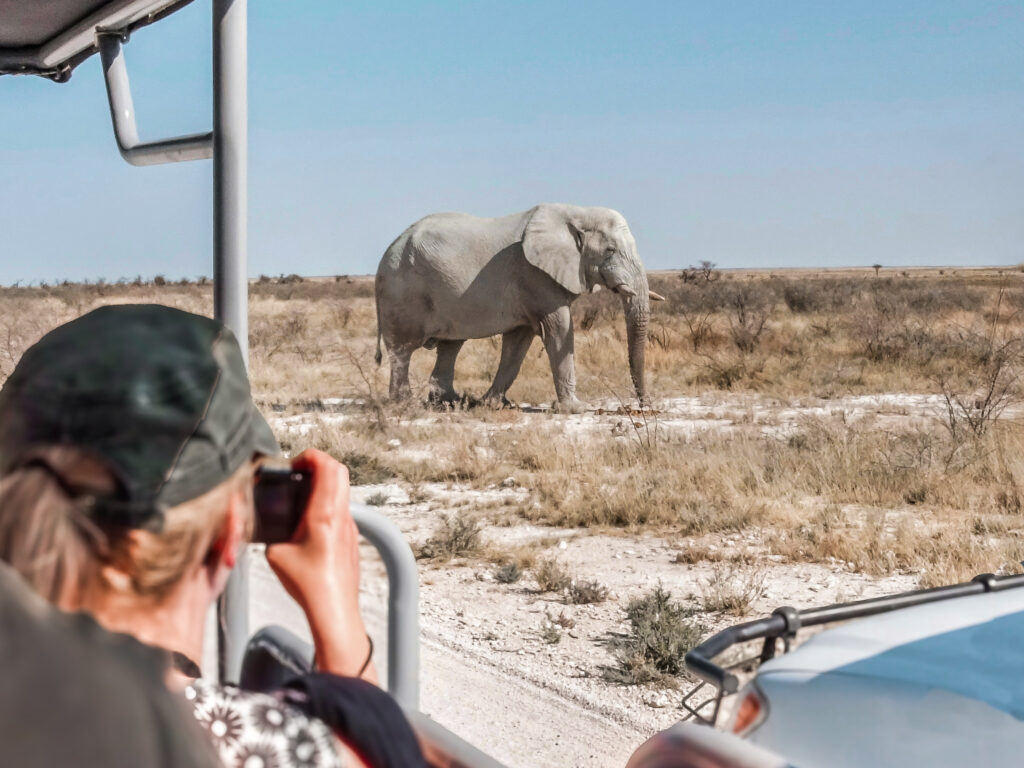
How To Plan a Safari?
Planning a safari never gets old, and standing face to face with wild animals will definitely be one of the most exciting things you’ll ever do. There are a number of key points to consider in order to plan your very own African safari. Booking a package might seem easy and less time consuming, but it’s usually more expensive. Packages also don’t always tend to your wishes. To make your safari a truly special experience, it’s well worth planning it by yourself. You can use this safari planning guide to get started on your dream trip!

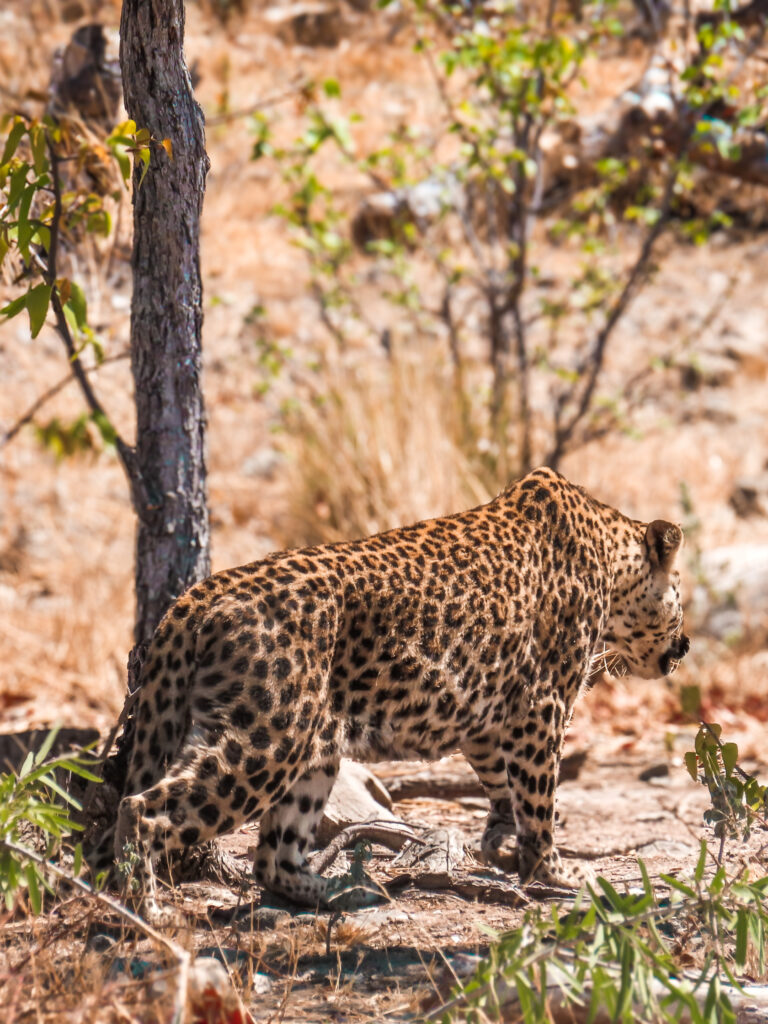
Choosing a destination
Let’s start with the most important question: Where do you want to go? Choosing a destination on a continent that’s bigger than the United States and all of Europe combined is not easy, especially when it’s your first time traveling to Africa. The answer to this question is actually very easy: all safari destinations have their own unique qualities, so it really doesn’t matter which one you pick.

Eastern Africa
If you’re looking for the Big Five we can split up the continent of Africa into two regions: Southern and Eastern Africa. East Africa is mostly known for its great migration in the Serengeti National Park in Tanzania and the Masai Mara National Park in Kenya. Most people combine a visit to Kenya and Tanzania, and end their trip on Zanzibar, a tropical island near the Tanzanian coast. Uganda and Rwanda on the other hand, are known for their gorilla-treks, but it’s possible to see the Big Five in these countries. Eastern Africa tends to be a bit more expensive than Southern Africa, mostly due to the huge distances between destinations and the need for a chauffeur in some areas.

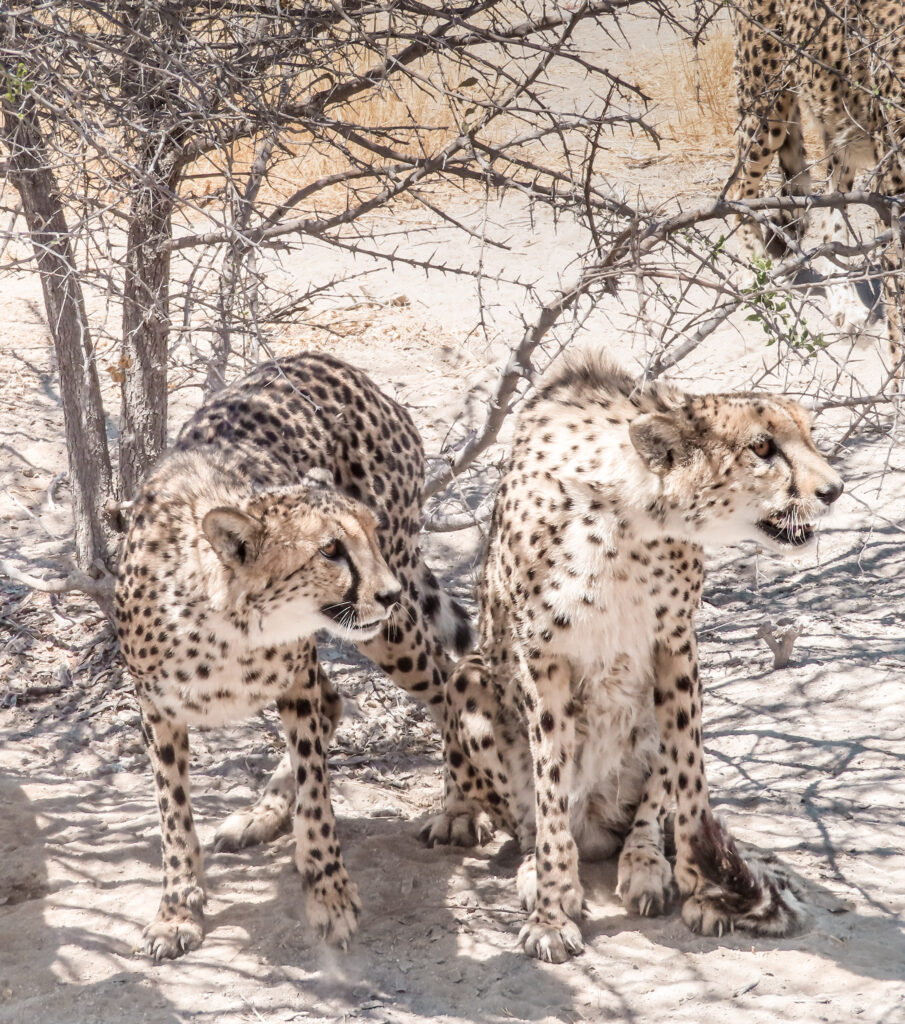
Southern Africa
Southern Africa is a bit more accessible, and it’s possible to combine several game reserves or even countries with each other while driving by yourself. The most obvious start is South Africa, which is the perfect country for beginners. It’s the ultimate wildlife destination, but it also has big and bustling cities and amazing wine lands! It’s easy to combine your visit to South Africa with Namibia, Botswana, Zimbabwe or Zambia. If you’re in for a truly wild experience, Zimbabwe, Botswana and Namibia are your go to options. The Namibian Desert with its impressive sand dunes, the Okavango Delta in Botswana and Victoria Falls in Zimbabwe will leave you with memories that last a lifetime!
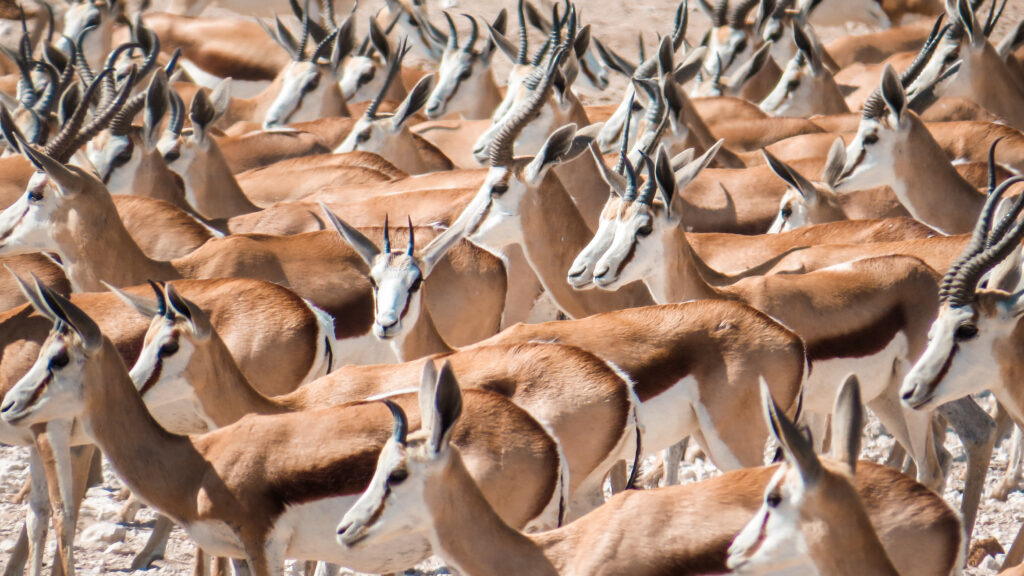
How Many Days Do You Have?
Let’s start with our second most important question: How much time do you have? Whether you have all the time in the world or just a couple of days, there’s a safari for everyone. If you’re going for a short stay, you can plan a safari in an area with great accessibility. That way you’ll save a lot of precious time on transport that you can spend on actually going on safari. When you have a little more time you’ll have a much broader choice in destinations, which will give you other, more elaborate options. You’ll even have the possibility to combine several game reserves or visit other highlights during your trip.
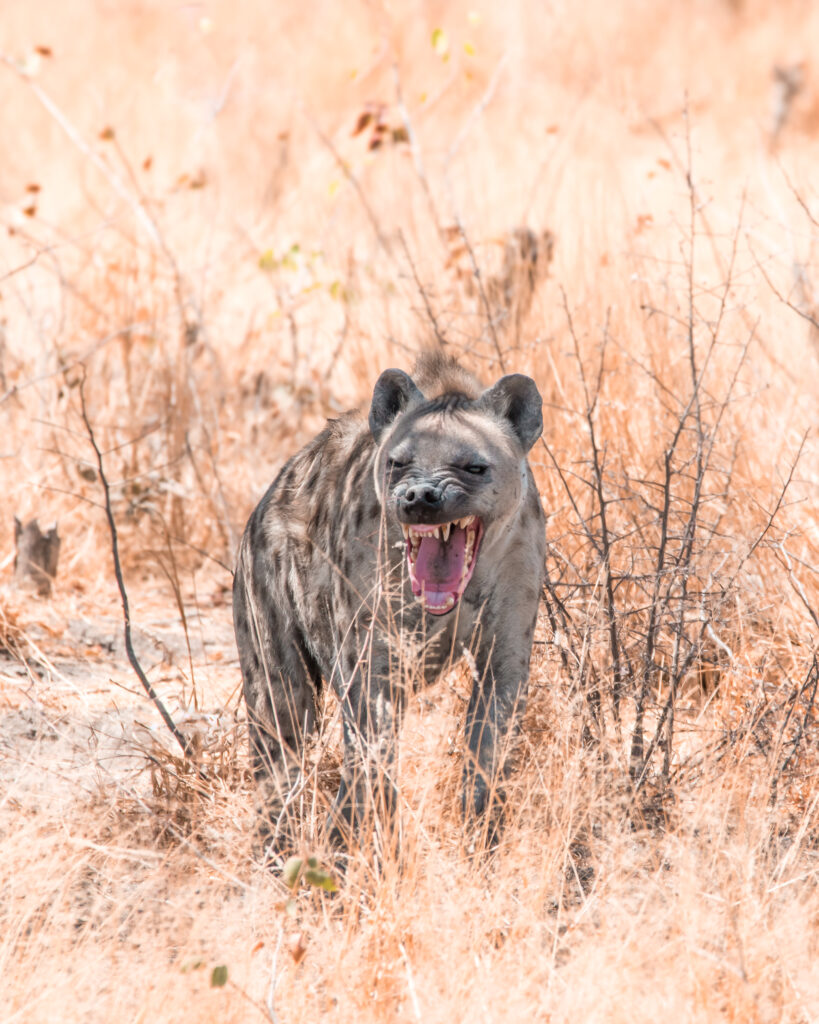

How To Determine The Amount Of Days I Need For Safari
To determine how many days you need to get the most out of your experience, consider writing down what you want to get out of your safari experience. Do you want to see the Big 5 and capture them with your camera? Or is it more about experiencing animals in the wild with your travel companions? If it’s the latter, two or three days will be enough to experience going on safari. If it’s the first, you might want to plan a week or more. Some animals are quite hard to find, so the more time you have, the higher the chance of seeing them.

Minimum Amount Of Days For Safari + Examples
It’s safe to say that in most cases, two days of safari is the minimum amount of days you need. In two days, you can go on two morning drives, an evening drive and maybe even on a night drive to spot nocturnal animals. If your primary reason to travel to Eastern or Southern Africa is to go on safari, you will obviously want to plan more days for safari, or spread your designated safari time over several game reserves. Below you can find some examples of how we plan our safaris and the time surrounding them.

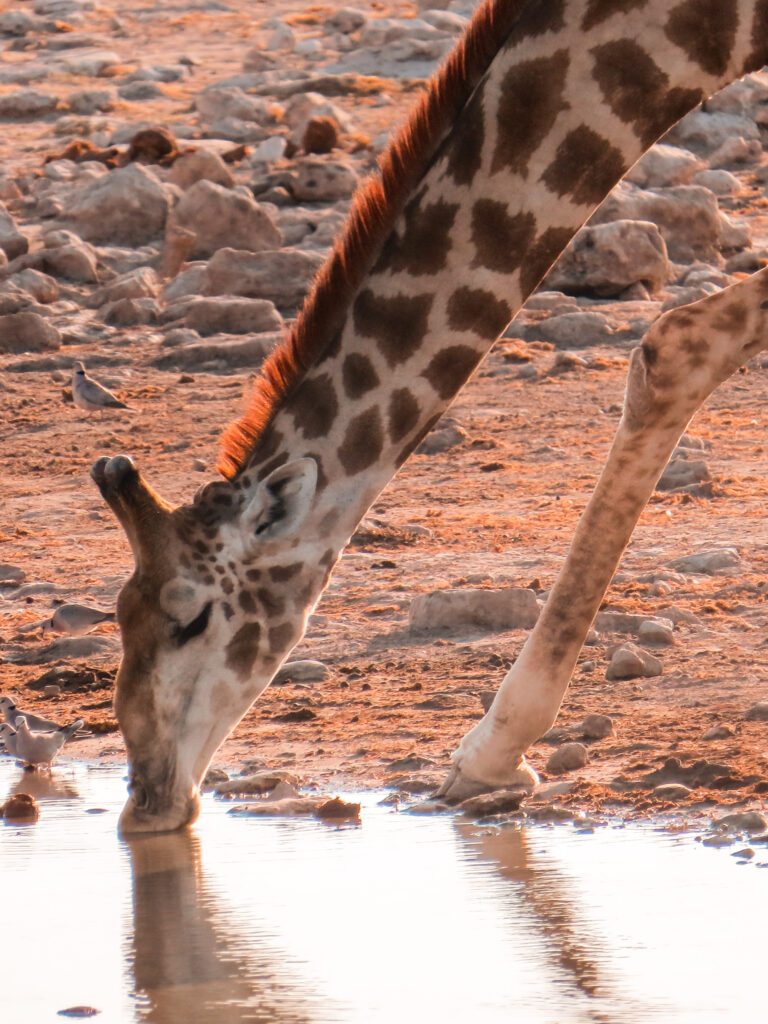
Safari Example 1
For a three-week road trip through South Africa, we planned nine days for safari. These days were filled with a visit to Addo Elephant Park – two days, Madikwe – two days, and Kruger National Park – five days. To get the best of both worlds we booked guided tours in all three of the reserves, and reserved a couple of self-drive days in Kruger National Park. During our self-drive days we camped inside Kruger, so we didn’t have to wait for the gates to open. Because going on safari was our main goal during this trip, we filled the rest of our days with exploring some local villages and cities, driving up the coast and enjoyed many, many amazing restaurants.

Safari Example 2
For a three-week adventure in Namibia we planned six days for safari in Etosha National Park. We stayed at a beautiful luxury lodge and booked guided tours in an open safari jeep for three days, and three camping at another lodge inside the park. The remaining days of our trip were spent in several National Parks that are not specifically animal related, like the rugged Skeleton Coast and the sand dunes of the Namib Naukluft NP. We enjoyed driving through the desolate landscapes, went on a bit of a mini flamingo safari at Walvis Bay and enjoyed the unique culture of Namibia.
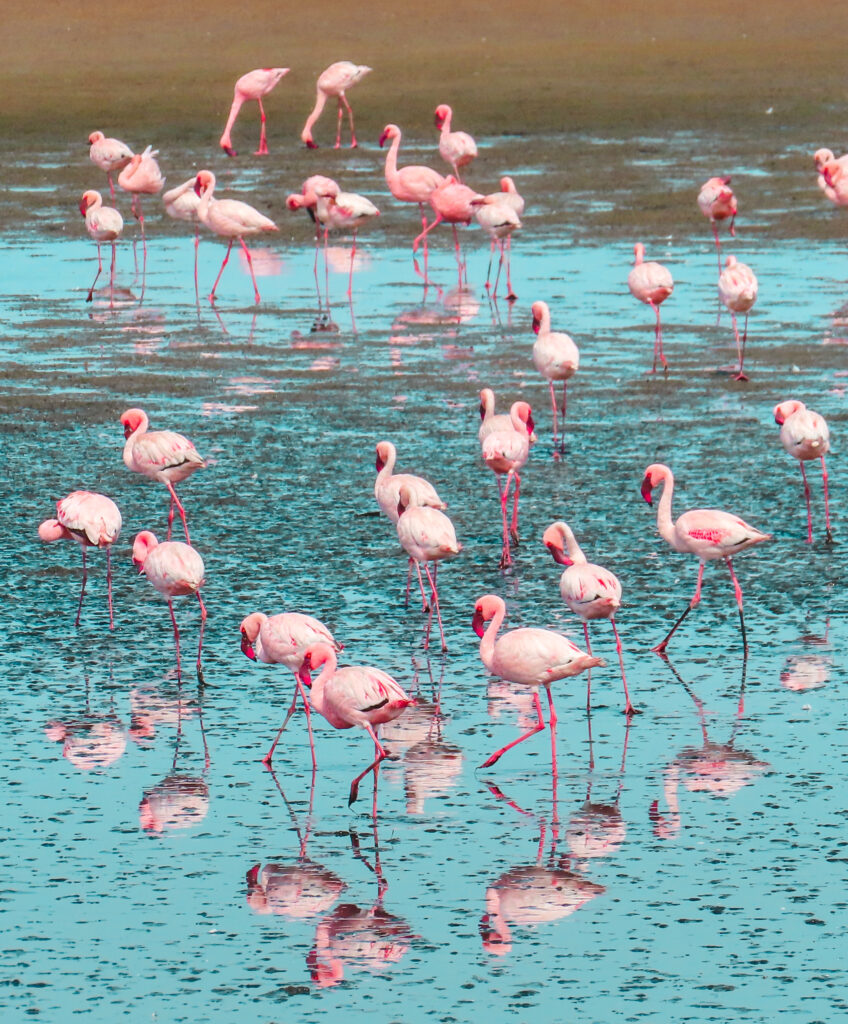

Setting your safari budget
Going on a safari can be quite expensive, especially in Eastern Africa, so it’s important to set a budget beforehand. That way you’ll get a realistic idea of the costs, how much you’ll need to save and if the costs live up to the experience. That being said, it’s absolutely possible to plan a safari on a smaller budget, especially in low season. When you have decided on the amount of days you want to spend on safari during your trip, you can set a budget on the basis of where you’d like to stay.
Example: for our six-day safari inside Etosha National Park in Namibia, we set our budget between €90-€120 per person per day. This included our stay at a campsite, three nights at a luxury lodge, the entrance fee to Etosha National Park, three private game-drives, meals, fuel and tips.
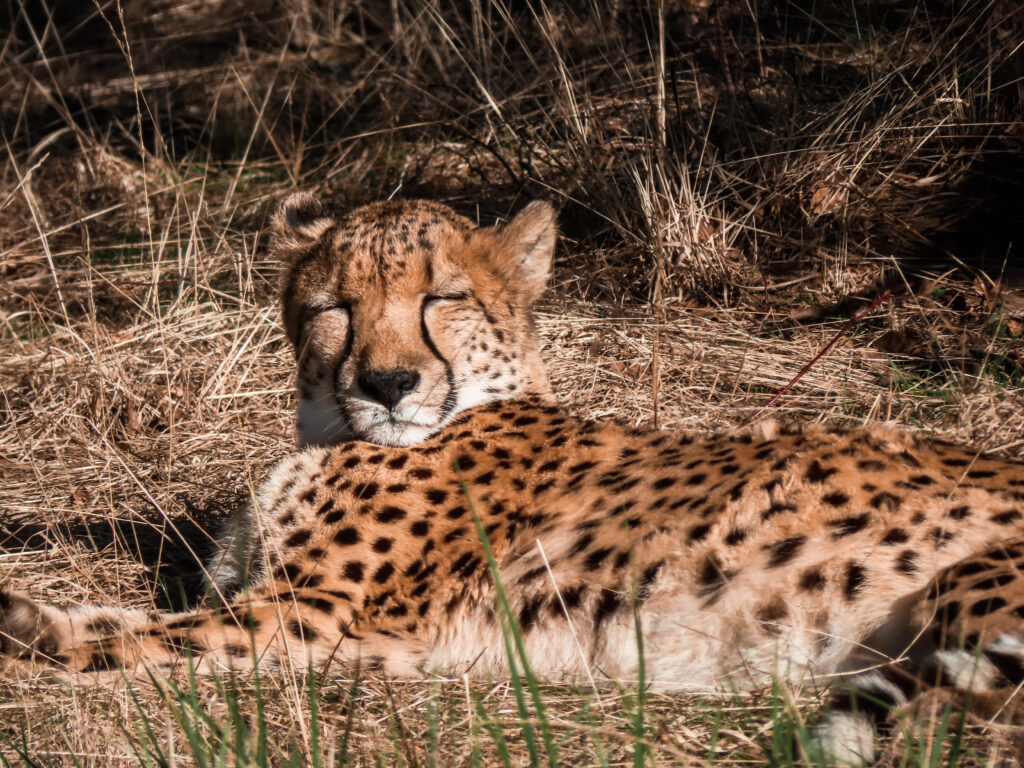
Staying inside a game reserve
There is something to be said for both of these options. Staying inside a game reserve can be the most thrilling and exciting experiences during your safari. Just imagine hearing hyenas howl and seeing elephant footprints right next to your tent in the morning. Apart from that, you’re already inside the park! This means no queuing with day trippers and getting to enjoy quiet morning game-drives. This is definitely the best option if you’re short on time. Staying inside a game reserve is however, more expensive than staying outside.
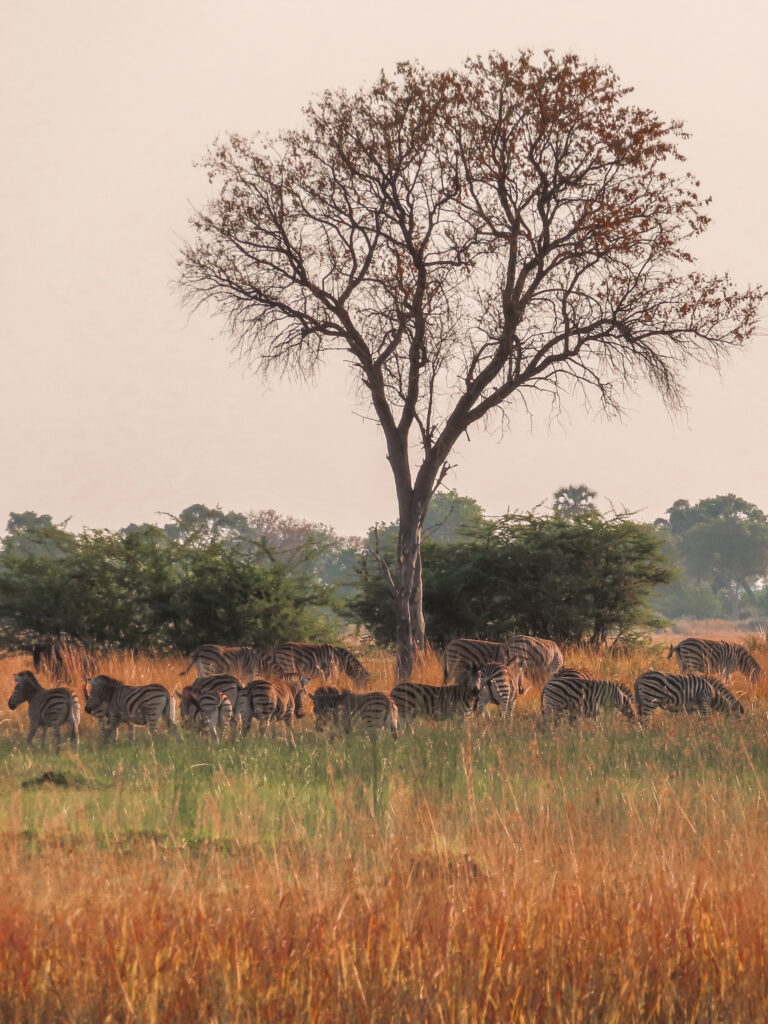

Staying Outside A Game Reserve
If you’re planning a low budget safari, staying outside the game reserve can save you a lot of money. Most of the accommodations around the game reserves are also quite close to the entrance gates. If you’re patient, and don’t mind the wait at the start of each day, there will be plenty of time to enjoy your game drives.
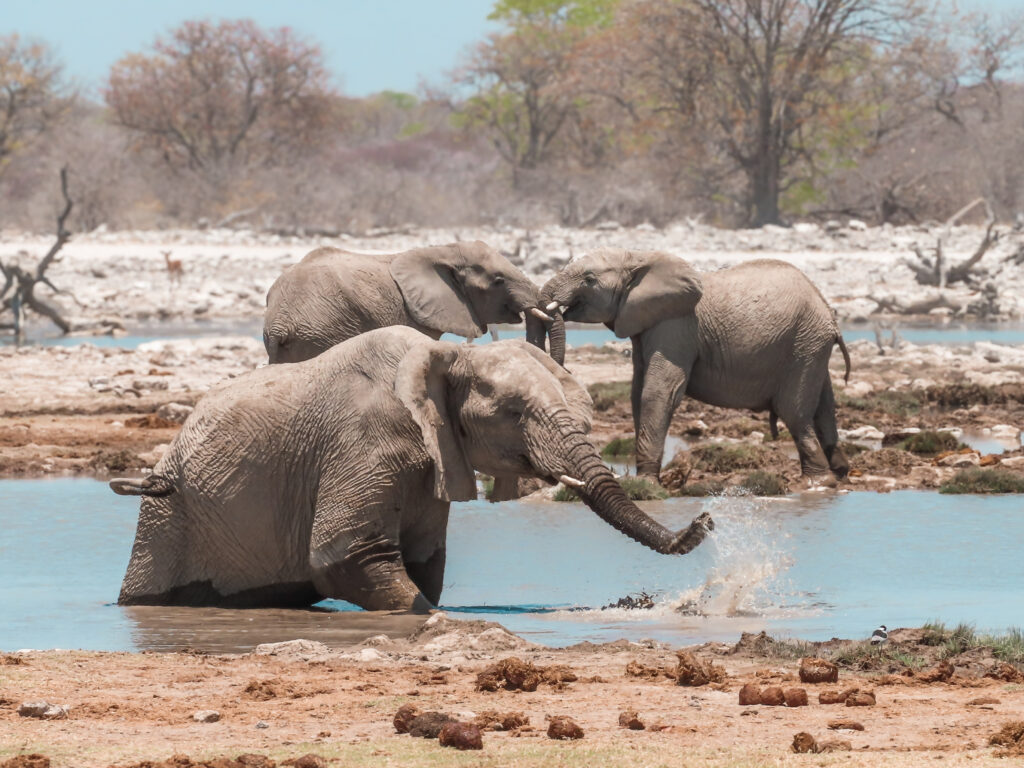
Where Do You Want To Spend The Night?
When you’re going to visit a game reserve there are usually two options when you stay inside the park. You can either go camping or stay at a (luxury) lodge. There’s something to say for both of these options, so it really comes down to your own personal preferences and budget. I usually like to combine staying at a luxury lodge and go camping to get the best of both worlds and the most out of our budget. It’s the perfect mix between going back to basics and enjoying the amazing activities lodges have to offer.


Camping On Safari
Sleeping between wild animals in your tent inside a game reserve is an unforgettable experience. It’s exciting and it’s also more affordable than staying at a lodge. Most people also really enjoy the sounds of the animals and waking up in the middle of nature. Camping is also a great option if you’re traveling with a bigger group, you can build a campfire at night and talk through the amazing day of safari you just had.
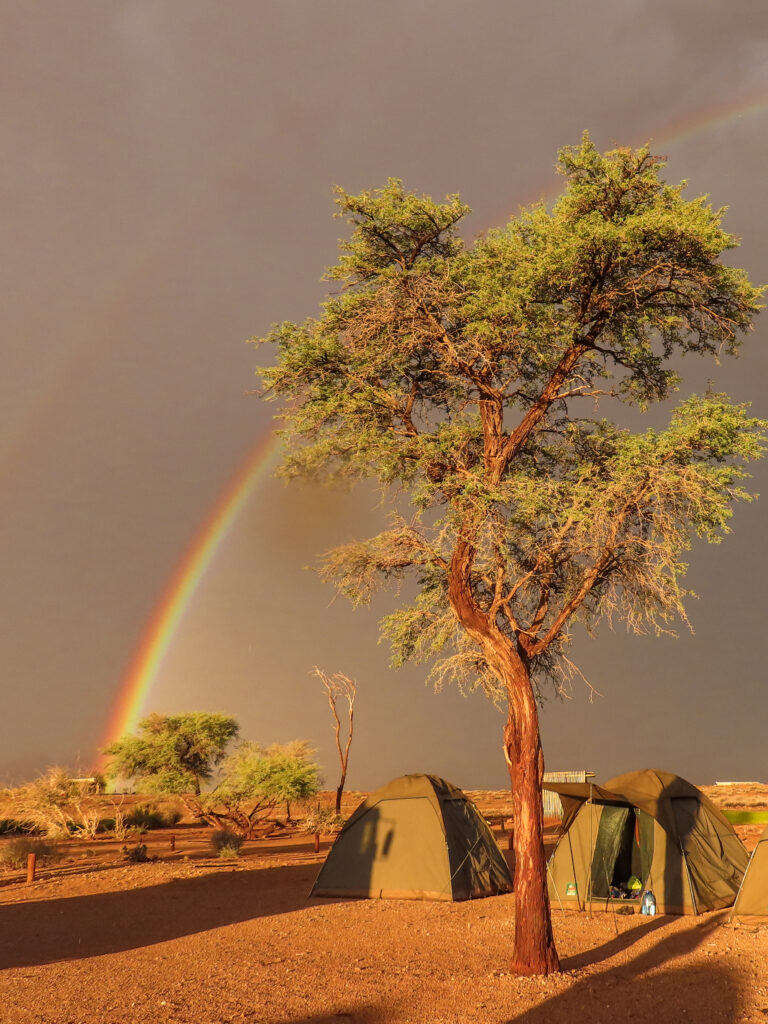
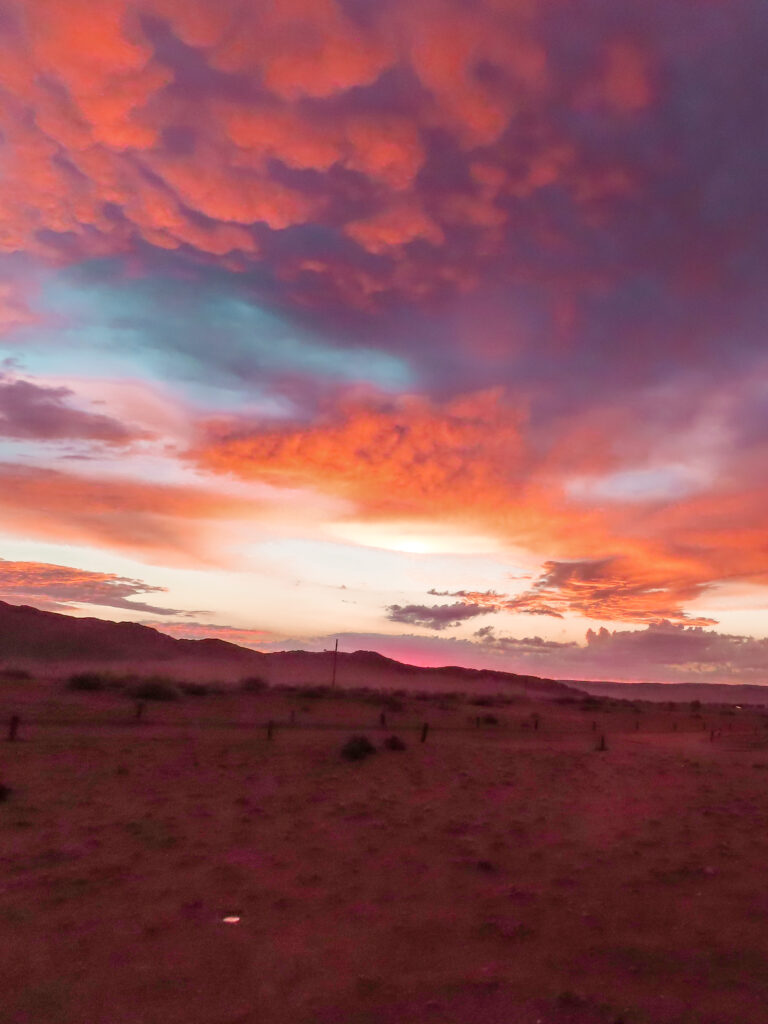
Staying At A (Luxury) Lodge
Staying at a lodge can be an amazing experience. Most lodges have viewpoints or “waterholes” where animals gather, so you can spot elephants, rhinos or lions after, or during your dinner or even from your accommodation. Lodges organize a lot of activities, from private game drives and walks to night drives to spot nocturnal animals. As I said earlier, I usually combine the two of them. I opt for camping at the beginning of the trip, and stay at a luxury lodge at the end of my trip. To relax, enjoy the atmosphere and already reminisce about the amazing things I have seen and done.
Tip: Because there are so many accommodations around and inside the game reserves, I always use the search tool and filters from Booking.com to compare lodges to our wants and needs.


Self-drives or guided tours?
The next question is whether you’d like to (partly) drive by yourself or let a guide take care of that. Guided tours are often expensive, but costs can be reduced by sharing a vehicle with other travelers. The guides know the game reserve inside and out and can give you priceless information. They’re also in constant contact with other guides, which makes it easier to spot hard-to-find animals like leopards. On the other hand, going on a self-drive is absolutely amazing. The thrill of spotting an animal all by yourself is a feeling you will never, ever forget. I always opt for a combination of these two options to plan the most unforgettable and versatile safari experience possible.
Tip: I always rent my car through Sunny Cars, because insurance is included and they provide 24/7 support if you get into any car trouble.

Explore your Safari preferences
A safari can be a once-in-a-lifetime experience, so it’s important to think about your own preferences. By now you’ve already covered all the practical choices, like budget, time, destinations, accommodations and game drives, which is great! But to make your safari truly perfect I would like you to think about your own goals for this trip.

Relaxed or active?
Firstly, we need to figure out what kind of pace suits your needs. Are you prepared to get up early every day to go on a game drive? Or would you rather have a relaxed breakfast before your day starts. The more relaxed safari-goers tend to be more mindful and like to take it easy. The active ones on the other hand get their energy from diverse activities and being on the move. In my personal experience I think that balance is key here. It’s really nice to take some well deserved rest after a busy day with so many different impressions.
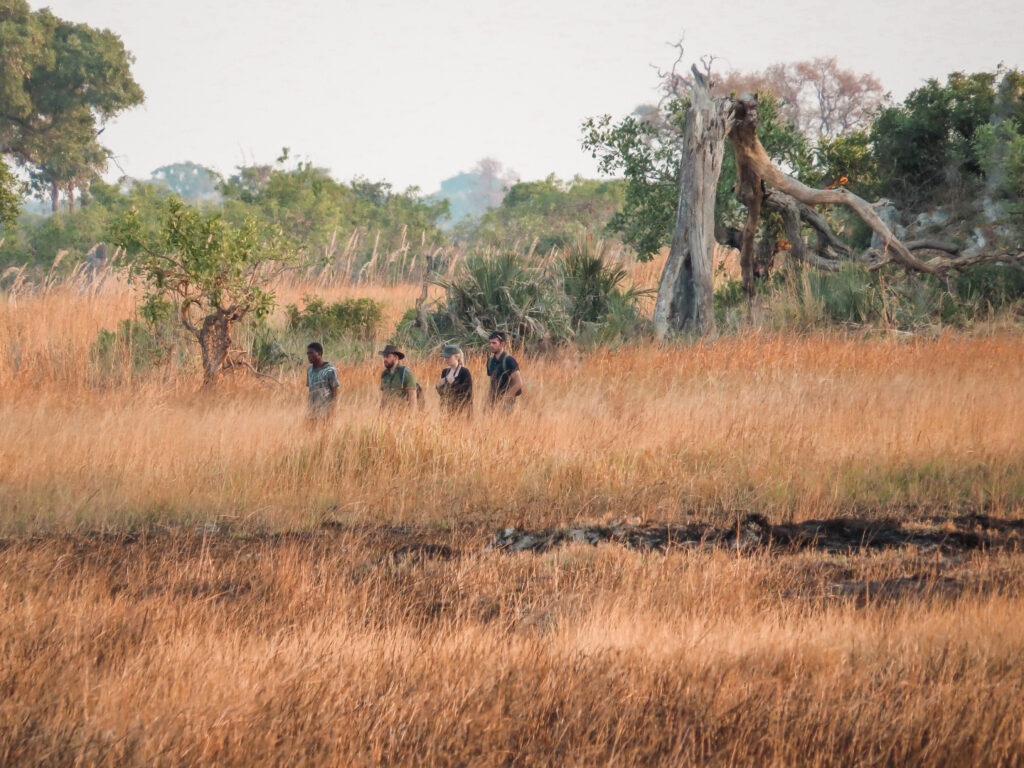
What about your fellow travelers?
Secondly, it’s important to sync with the rest of your party. If you’re very active but your fellow travelers are not, going on several walking safaris will probably not suit everybody’s needs. If anyone in your party has a disability it’s also crucial to communicate this with your accommodations and guides. They can tell you exactly what your possibilities are or if you need to take any precautions. If you’re traveling with children there are some other things to consider. Like how long of a drive will be suitable for them, or if you prefer to travel to a low-risk malaria zone.


And what about you?
Finally, it’s time to explore the rest of your preferences. What are the essentials for making this the perfect safari for you? Do you care about being online or don’t you mind being without Wi-Fi for a couple of days? Would you like to cook for yourself or do you prefer to go out for dinner? These are all small things to consider, but nevertheless can attribute to your perfect trip!
Ready to book?
When you purchase something through these links, I’ll earn a small fee, while you still pay the same. Win-win! Thanks for your support!
